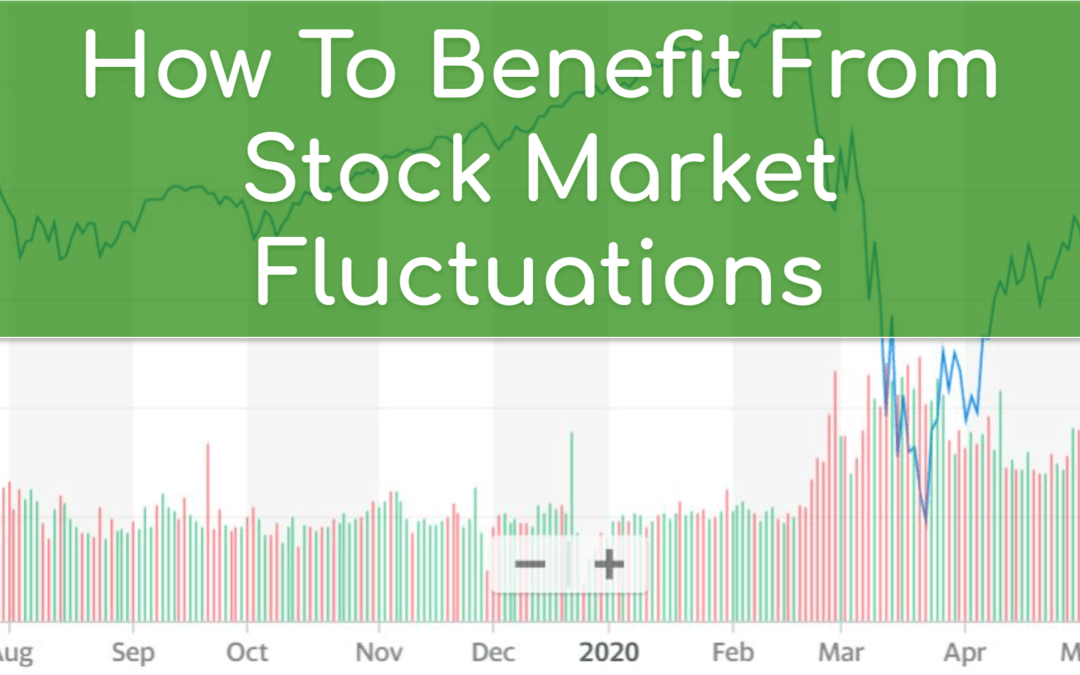As investors, we have the power to be fearful of big price changes in stocks or to use them to our advantage.
The choice is ours.
If you’re investing in the stock market you need to be mentally AND financially prepared.
Reason for this is that stock prices will vary widely, I’m talking about increases and declines of 50%+ within a year, which is not abnormal.
A thought experiment for emotions & your portfolio
Just imagine how you’d feel if your $100,000 portfolio increased to $150,000 within a few months. How about if it dropped to $50,000?
What’s crucial is managing your emotions and staying rational when something like this plays out in the real world.
By not allowing your emotions to take over when you’re feeling richer because of an increase or when your stomach-drops because of a decrease in market value you’re guarding your most valuable advantage by keeping a cool, rational head so your decision-making stays sound.
[You can adjust the numbers in the example above to reflect the size of your portfolio and then note how you feel in both cases.]
These inevitable wide swings can be capitalized on in both directions by the investor:
- When prices increase dramatically it’s an opportunity to sell down positions that have advanced a lot and take some gains
- When prices have dropped enough that the company just went on “sale” and is a steal it’s time to buy
Have to be careful here and maintain a long term horizon, since this buying and selling is the exception to the rule when talking about the way I recommend investing. Most of the time spent as an investor should be waiting and holding, optimally for the long-term—at least a year, but preferably indefinitely when talking about high-quality companies selling at fair prices.
Investors need to leverage their advantages
An added benefit of the stock market for the investor is liquidity, this can become a disadvantage because of the constant quotation and speed that you can buy or sell. This isn’t the case when owning a local business or a piece of real estate, which takes much more time and effort to buy or sell, optimally the decisions to make a stock transaction should feel comparable to these less liquid assets.
Realize that having a quotation is there for your convenience and to serve you, not the other way around.
Modern media as a potential liability for stock investors
There is another huge aspect of being psychologically prepared for investing in our modern times. We’re dealing with a very new, hyperactive, short attention span hijacking, competitive, overly entertaining, pandering—like “yes” men—media that’s fighting for our attention and using every trick in the book (and mostly seems like they studied the Enquirer and morphed into tabloids) to get you to click that sensationalist link.
Just picture all the different touchpoints the media has to reach you now, all those headlines grabbing at you, Tweets pecking at you, narratives selling you BS, notifications popping up on your devices, posts whizzing past you, influencers trying to influence you, personalized feeds chasing you to tell you their opinions and predicting what’s coming or what you should do about it. It’s hard to ignore them or reframe their information because of the volume and frequency.
What’s required here when you decide to read any of this stuff is to be critical so you can remove the bias and emotion from the information and rationally process what remains, leaving the useful parts, if any, and mental filing that for later use.
As you can see it’s easy to lose your advantage as an investor and become a speculator, where you lose your primary probabilistic advantage in a market full of gamblers.
A sign that someone’s a speculator is if they’re trying to predict what the market will do next and attempt to benefit from these movements in the short-term. They are basically slaves to the market and their chances of success are quite random and their emotional states typically ebb and flow along with the craziness of the markets.
This brings us to the investor.
Instead of being pressured by fear, Fear Of Missing Out (on the gains), greed or not being able to stomach the declines, the investor is prepared to be sane while others are insane and profit from widespread folly. This is done by buying companies with underlying value at a reasonable price (or a ridiculously low price when prices tumble) and stack the odds in their favor.
The emotionally disturbed Mr. Market
Warren Buffett’s teacher, Benjamin Graham, said it wonderfully in Chapter 8: The Investor & Market Fluctuations of “The Intelligent Investor” (I highly recommend this book to anyone interested in learning sound investing, investor psychology and the big principles of investing):
Graham used a classic parable about having a business partner named “Mr. Market”, he’s someone who lets his excitement or fears run away with him, but every day he tells you what he thinks your share of the business is worth and is willing to buy you out or sell you his share of the business at that price.
Some days he might quote you a ridiculously high number and you can sell to him or on days he quotes you a very low price you can buy from him.
Most days you may agree with his price being fair and do nothing, but the most important part is coming up with your own fair valuation of the business so you have real numbers to base your decisions on.
It’s amazing how many really smart people in other areas of life just see a stock at $100 and think it’s expensive and see another stock at $20 and think it’s cheap without actually relating that back to the assets and earnings (past and future) of the company.
Different strategies for different temperaments
Not everyone is wired to seek value this way or can reprogram themselves to stop seeing the stock market as a casino, and for those people, the best course is to buy some index funds or mutual funds and just keep adding a similar amount regularly and let dollar-cost averaging do the rest.
But for that smaller group that’s able to see that when you’re buying a stock you’re buying a small piece of a BIG business and it’s future earnings, you’ll revel in the fact that these organized marketplaces offer thousands upon thousands of potential investments to choose from. With this tremendous assortment of businesses for sale, you’ve got a great chance of finding some screaming deals quite easily during the “bad times” and if you look hard enough during the “good times” you still have a pretty good chance of uncovering plenty of companies to buy at fair prices that still have a high probability to deliver substantial returns.
It’s by no means comprehensive, but it gives you the basics of how to change your perspective about market fluctuations and how to behave like an investor.
KPIs
Progress: 2 of 9 posts completed (7 left)
Words written (target 750 – 1250): 1,162

